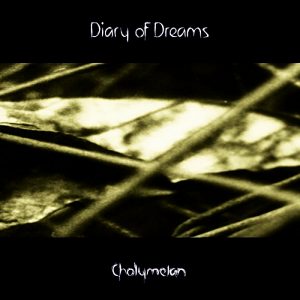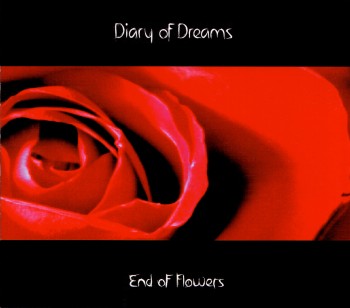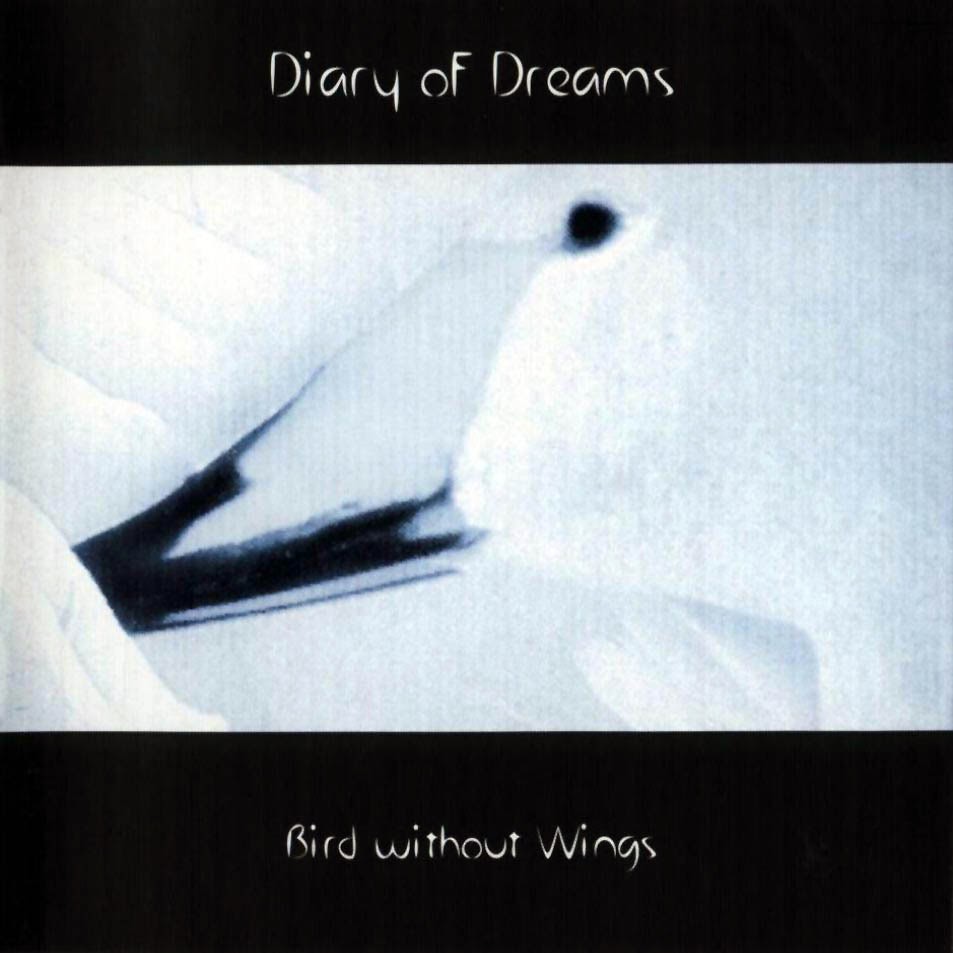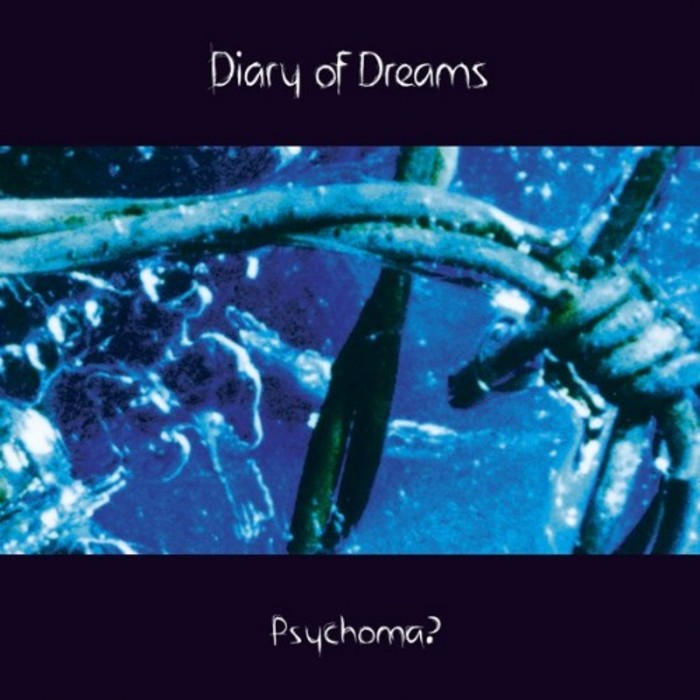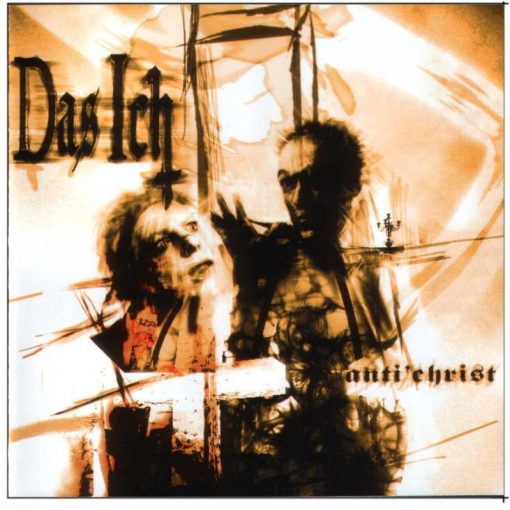The second consecutive Listener’s Guide to be about a band from Deutschland beginning with ‘D’, but that’s the point at which the similarities end. The DAF listener’s guide was written as a somewhat delayed tribute to Gabi Delgado, who died on the eve of the initial COVID lockdown (thankfully not from said disease itself), only for my writing to get totally derailed as my creativity ground to a standstill along with the rest of the world. I eventually completed it, but the significance of the timing was lost.
This guide, however, has been a long time coming. It’s about a band who have featured frequently in my DJ sets and past playlists. I wrote about them frequently back in my EOL-Audio days. And yet I’ve found their works remain somewhat under-appreciated amongst many of those who’s tastes I otherwise share. Too “goth” for the industrial kollectiv, too electronic for the goth-rock puritans. Too dark in tone for the casual listener, but too song-oriented for experimental elitists.
It’s time to tell you all what you’ve been missing out on.
Melan-Choly-Flowers
Diary of Dreams was formed by Adrian Hates in 1989, originally as an offshoot of Garden of Delight, though Adrian’s tenture in this band only lasted a few albums. The projects name is as Anglicised version of the name of one of his classical guitar compositions “Tagebuch der Träume”. The use of English as the projects primary language was an early decision, wishing to set themselves apart from the majority of German darkwave bands who sung in their own language, although they would occasionally utilise German themselves if they felt it suited the song in question.
Debut album Cholymelan was released on Dion Fortune records in 1994, their first and only release on any label other their own (at least in Germany). Whilst there are hints of gothic rock orgins, the sound is more keyboard-oriented that anything grown in the “Garden”, with a reverb-heavy production that plays up atmosphere above all else. It is the sound of mist-covered moorland, dark forests and, indeed, an overall sense of melancholy, the album title serving as the first of many examples of wordplay, something that would become a Diary of Dreams staple.
Admittedly, the sound is somewhat dated by contemporary standards, the early 90s synth technology not yet mastered. If you’ve listened to German-scene samplers from this era, you’ll know what I’m getting at. Neither is the songwriting fully developed at this point – but even at this early stage, there are memorable moments. The nearest we get to an ‘anthem’ is False Affection, False Creation, built around that effect-drenched guitar riff heard in more trad-goth songs than you or I dare name, though the airy keyboards set this one aside from the army of Neph/Sisters/Bauhaus wannabes that dominated the genre through the 1990s.
Aside from this centrepiece, it’s an album where you’ll pick out whichever combination of keyboard preset and turn of phrase strikes a chord. In my case, I went for the panflute sequence in At The Border Of My Nation, the staccacto strings of Holier Than Thou Approach, the creepy piano and hammering drums of Shattered Disguise or the climatic pizzicato of Bird Without Wings. Elsewhere, the album is still indicative of a project finding it’s true calling, with too many under-developed ideas and lack of an overall structure. The Diary of Dreams sound has not yet been truly born, merely conceived.
End of Flowers followed in 1996, released on Adrian’s newly formed label Accession. The album is conceptually similar to its predecessor, but with some slight development in terms of how both the songs and the albums as a whole is structured. The opening title track is the best example of this – a delicate synth pulse thrown into contrast with a metronomic electronic rhythm, strengthened further when guitars scythe through the mix. At seven minutes in length, it’s the first of many Diary of Dreams compositions to successfully adopt the long-form structure. That said, the albums more accessible moments still tend towards a synth-heavy gothic rock, the hard edges of Victimised and the uptempo payback call Retaliation the other real stand-outs.
The remainder of the album is more subtle in tone. There are moments of note – A Fool To Blame makes the best play of building to a crescendo from the already-overused choir synth preset, and the doomy orchestrations of Oblivion also make their mark when played though a decent system (forget about playing this one thru your phone). The remainder of the album admittedly makes all the right noises, but ultimately leaves little lasting impression. Adrian did once describe this as the most ‘personal’ of the early albums – unfortunately, it results in songs who’s sentiment is clearer to him than to the end listener. The real step forward was still a year away.
“Others Cry For Help, Like It Would Change Anything”. That profound line opens up both Stimulation and the 1997 album Bird Without Wings. From a one-note pulse, it’s a track that unfolds at a glacial pace, but eventually builds into the eight-minute epic that the previous two albums have promised but never quite delivered. Indeed, it’s a feat the album manages twice, with centrepiece But The Wind Was Stronger again serving as an extended-length statement of the futility of fighting against forces greater than oneself.
If you are looking for something more conventional, Bird Without Wings II advances lyrically and musically on it’s ‘Cholymelan’ predecessor, though if you’re tiring of all this introspection, look no further than Ex-Ile, an aggressive and highly cynical swipe at traitors, and also what would be the closest they’d get to ‘classic’ trad-goth sound for several albums. It’s somewhat atypical for an album which essentially focuses on drawn-out sagas, though the close-out number Flood of Tears is a surprisingly simple, touching acoustic ballad sung from the bed of one living a life of chronic illness. It’s quite unlike anything they’ve produced before, and indeed seldom would again until an unplugged album many years later. But all that lies in the future.
Before we even get close to that, there’s the thorny issue of 1998’s Psychoma? (Their punctuation, not mine). If the first album introduced Diary of Dreams from an atmospheric aspect, the second the emotive content and the third the epic scale of their sound, this fourth album brings the additional ingredient of twisted-up bi-lingual wordplay. As previously explained, whilst Adrian writes the majority of songs in English, he’s prone to switch to his native German on occasion – and if he can get references to both tongues into a song title, so much the better.
And over two decades since this album came out, my pondering as to what this album is all about hasn’t reached a definitive conclusion. The complex structures and esoteric subject matters elude me to this day. never’Freeze, with it’s icy-clean guitar plucks, and the biblical-scale dynamism of Methusalem are about as accessible it gets. Elsewhere, we get the occasional melody or lyrical phrase that catches attention – indeed, some passages on this album are clear predecessors to more notable songs on later albums. But it’s still the hardest Diary of Dreams album to listen to end-to-end, a clear case of technical merit over artistic impression.
This ends the 1990s chapter of this story. Many of you will be reading this as new converts or just casually interested, wondering what I’ve been writing about the past thousand words. Diary of Dreams had dropped the vast majority of these songs from their live set as far back as the mid-00s. Neither do any of the songs from these four albums receive significant club play any more. It’s not to say they’re not worth checking out because many of them are – it’s just enjoyment of them is now largely a solo pursuit of the most committed fans.
But as for their sonic evolution, the last piece of the DoD sound was about to fall into place. Because even bands this morose and reflective have a place on the dancefloor.

